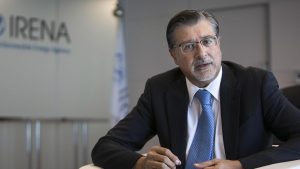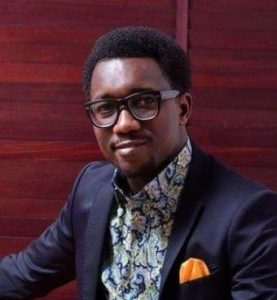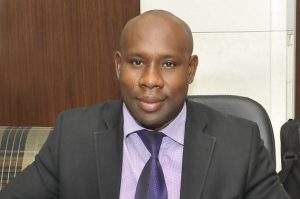With over 10 years’ experience in the renewable energy (RE) sector, Tinyan Ogiehor, is highly skilled in managing RE portfolios. He is equally a sought-after expert in the sector, and has worked on solar related projects at the Niger Delta Development Commission (NDDC), Office of the Senior Special Adviser to the President on Millennium Development Goals (OSSAP-MDGs), and USAID funded Renewable Energy and Energy Efficiency Program (REEEP).
Ogiehor is currently the lead technical advisor, solar PV for a DFID funded programme, Solar Nigeria. He spoke to OGN on the opportunities RE solutions could offer public and private clinics across Nigeria to improve their service deliveries to patients including minimising pre-mature deaths. Excerpts.
Are you able to identify the opportunities RE solutions currently offer to health care operators in Nigeria?
RE presents a number of opportunities for health care operators in Nigeria. A number of public and private health care facilities in Nigeria currently lack adequate power supply to power vital equipment’s for their services which has caused pre-mature death.
RE could offer several opportunities to improve the overall outcome of the health care industry in Nigeria. With longer hours of operation, as a result of RE interventions, health care facilities can improve on cold storage for blood, vaccines and medication; better environment to receive patients – waiting rooms with constant ventilation and well lit; laboratory services; better water access like water pump machines; delivery of babies especially at night and other night time services.
Would it make economic sense to them to pivot?
Basic healthcare at the primary health centre levels comes free to the people of the locality. Primary health care centres are fully run on government support. They are not commercially viable. As a result, the only way RE can be attractive to these centres is if the government provides intervention funding to support the installation and operations and maintenance of the RE solution.
The initial cost of obtaining RE solutions might be too high for the centres to pull together alone hence the need for external support. But for sustainability, the local community can have a surcharge on basic healthcare activity which will cater for the operations and maintenance of the installed RE system.
In terms of capital investment, are you able to give a near-perfect financial estimate for deploying RE to an average rural and urban clinic?
No, it is hard to estimate what the cost of deploying RE to an average clinic will be. Every health facility is unique – there is no one size fits all solution. Different clinics have their power priorities – some require only cold storage, while others might need to function more at night hence different solutions and different prices to cater to the solutions.
In your job in the RE sector so far, can you say that a successfully deployed solar PV system would be able to effectively keep a health care facility off grid.
Yes, this is exactly what I’ve done in the past few years. I use RE solutions to completely and effectively power primary health centers so the facilities have no need for dependence on the grid.
What are some of the odds if a hospital decides to go off grid with solar PV or any other RE source?
It is very possible for any facility to go off-grid. One has to first of all consider the cost of completely going off-grid. Hybrid options like solar with diesel generators might be slightly more affordable in the short-term. A detailed consideration of the health facilities energy needs would also come into question. What electrical load is essential for functioning of the facility and what is non-essential.
Are there possible or known RE funding or financing models that health care centres in Nigeria can leverage to electrify their facilities?
There are financial solutions that exist with commercial banks for businesses intending to deploy solar. Private health facilities might be eligible to access these funding solutions. The case might be different for public health facilities as they will depend on state or federal government intervention or international donor support.
Brief on Tinyan Ogiehor’s RE operations:
At Solar Nigeria, Ogiehor is working to develop the off-grid solar market in Nigeria. This is being achieved through implementation of solar for social projects for schools and clinics in Lagos, Kaduna and North eastern Nigeria (with over 6.5MWs of installed solar power till date), supporting the administration of grants to solar companies to enable them to develop their businesses and reach financial close for a number of commercial scale projects, (with power generation as large as 1MW in Northern Nigeria).
Also, Ogiehor has a working knowledge of the off-grid solar market in Nigeria. He has formed strategic partnerships with majority of the solar companies and financial institutions needed to scale this market in Nigeria. Overall, He has a good understanding of how the market should work from both a business and technical perspective.





